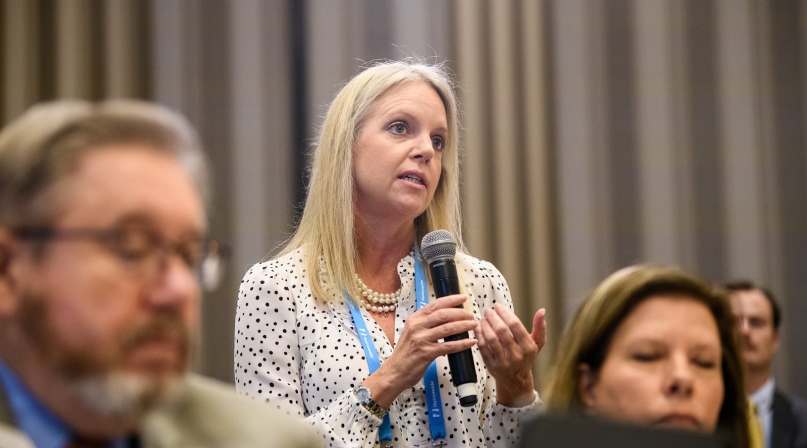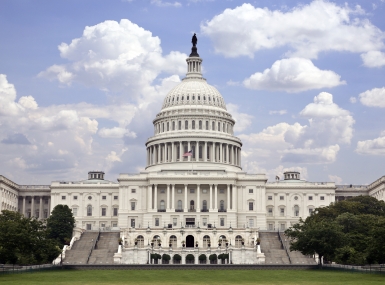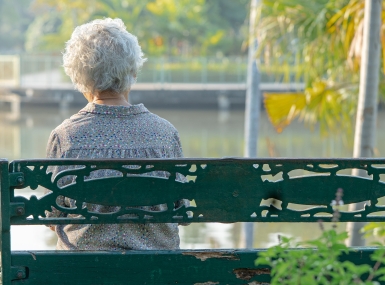Palm Beach County’s opioid treatment pilot expands to 12 counties in Florida

Key Takeaways
An opioid addiction recovery program that has reduced overdoses in Palm Beach County is expanding to 12 counties across Florida as Coordinated Opioid Recovery (CORE), a network of addiction care.
CORE is Gov. Ron DeSantis’ (R) response to Florida’s rampant opioid crisis. The state had more than 8,000 reported overdose deaths in 2021 –– its highest one-year total ever recorded –– and fentanyl-related deaths have increased by 790 percent since 2015.
Palm Beach County’s addiction treatment program has 400-500 patients receiving care at any given time from physicians, psychiatrists, addiction-specialized therapists, nurses and other health care providers, according to Robin Kish, director of media relations for the county’s Health Care District.
“We probably had the highest number of overdoses in the state, certainly one of the highest in the nation,” said Commissioner Melissa McKinlay. “It was crushing our community. I think we had somebody overdosing every 11 minutes in our county — we were losing on average more than two people a day.”
In the late 2000s, South Florida was home to a robust “pill mill” industry of unregulated pain clinics that issued prescriptions for opioid-based painkillers with minimal examination. Counties passed ordinances that closed most of them a decade ago, but millions from Florida and beyond were already addicted.
Palm Beach County dedicates about $1 million a year to its addiction treatment program, so that anyone seeking care can receive it, regardless of their ability to pay, so the financial burden doesn’t fall on the hospital, McKinlay said.
“This public-private collaboration provides a unique ecosystem where patients can receive treatment for their Substance Use Disorder (SUD) in the ER for the most acute stage of their illness, as well as a continuum of care right after discharge at the Health Care District’s outpatient clinic for as long as it’s needed,” Kish wrote in a statement. “Since SUD is a lifelong illness, this approach affords patients access to quality care on an ongoing basis.”
The pilot program was initially just for patients at HCA Florida-JFK Hospital in West Palm Beach who had been taken to the emergency room due to an opioid overdose. As the program grew, the hospital created a formal outpatient clinic and Addiction Stabilization Unit (ASU).
“The way that we’ve molded the program now is anybody can walk in, and we tried to do that where, at least with our [ASU] we have a triage program, if somebody comes in off the street, our staff then tries to determine, ‘Do you need inpatient? Do you need heavy outpatient? Can we come and treat you in your home?’” McKinlay said. “Like, ‘[what is] the best option?’ And then the other thing that we tried to establish was if you’re the parent or the loved one of somebody going through addiction, you can pick up and call and ask for guidance in trying to find help.”
Looking ahead, McKinlay said the county has dedicated $10 million to $12 million from the American Rescue Plan Act to tackle mental health and substance abuse issues.
“That mental health piece is so key, because a lot of addiction issues are a result of those self-medicating, because they’re not addressing their mental health issues,” McKinlay said.
The recovery program has been successful in Palm Beach, with drastically lower relapse rates among those participating in the program versus those who are not. Brief addiction monitoring assessments, which are self-reporting questionnaires that pertain to mental and physical health in relation to sobriety, have also shown that patients’ average protective factors go up and risk factors go down, according to Kish.
The counties involved in the first phase of CORE are Brevard, Clay, Escambia, Gulf, Marion, Pasca and Volusia, and phase 2 will be Citrus, Duval, Flagler, Manatee and Pinellas.
DeSantis publicly announced the program during a visit to Brevard County. “We don’t want Floridians to receive overdose treatment and then simply be sent back into the world for this to happen all over again, so we’re trying to give them the tools they need to navigate their path to a productive, drug-free future,” DeSantis said at an Aug. 3 press conference. “We have to work to try to break the cycle of addiction.”
Last year, the Brevard County Sheriff’s Office saw a 72 percent increase in fatalities related to fentanyl, prompting the county fire and rescue agency to relaunch the Project Care and Share program, which provides Narcan to families and loved ones of drug users, so they can save a life in case of an overdose.
The program was initially created in 2019, but was paused because of the COVID-19 pandemic.
Brevard was approached by the state to be a part of the CORE network, because it already had the infrastructure in place for it and the county had worked with organizations like the Florida Department of Children and Families to address the opioid crisis, said Orlando Dominguez, junior assistant chief of emergency medical service operations at Brevard County Fire Rescue.
Dominguez said that although the county is only in the beginning stages of implementation, he “absolutely” thinks Brevard will benefit from CORE.
“We know that there’s a problem, and we’re addressing this no different than our focus on cardiac resuscitation, on heart attacks, on strokes, on trauma,” he said. “We’re faced with this opioid situation and we’re addressing it aggressively to hopefully allow opportunities for recovery for these victims.”
Attachments
Related News

U.S. Congress passes reconciliation bill: What it means for counties
On July 3, the U.S. Congress passed sweeping budget reconciliation legislation.

Podcast: Counties fight social isolation
As awareness of social isolation spreads, Sen. Chris Murphy (D-Conn.) and Loudoun County, Va. Chair Phyllis Randall discuss the role of government in combatting the problem.

U.S. Senate passes amended reconciliation bill text: What it means for counties
On July 1, the U.S. Senate narrowly passed their version of sweeping budget reconciliation legislation.
